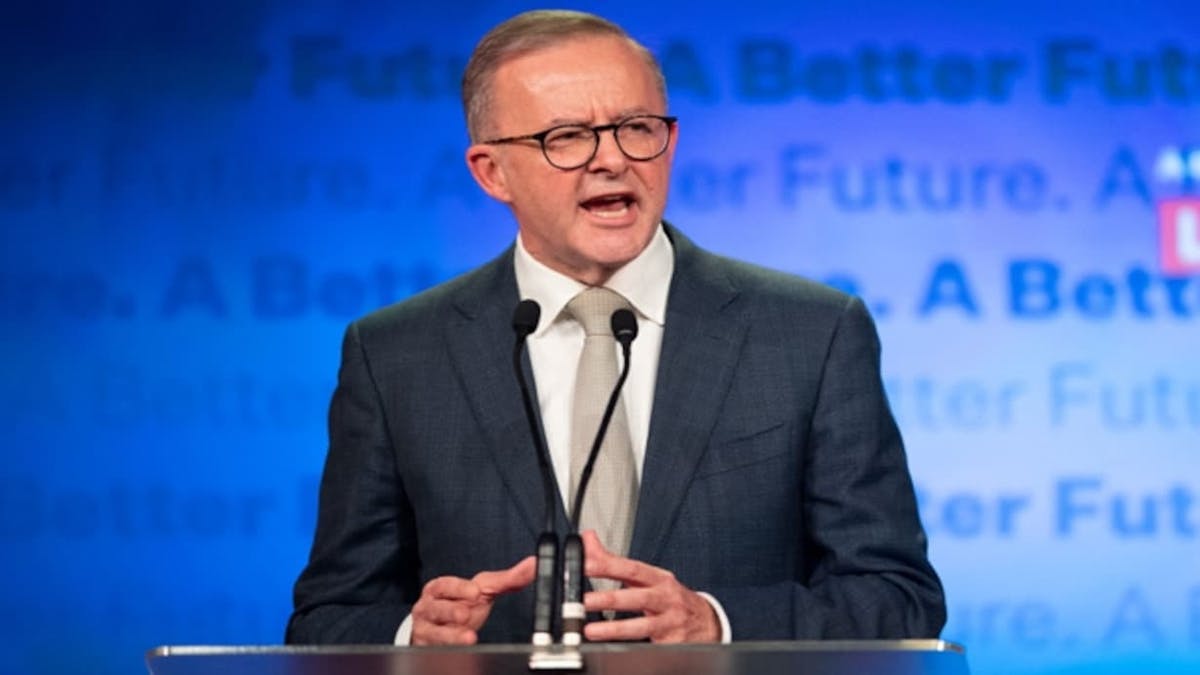In a strategic move aimed at fortifying domestic manufacturing and safeguarding national interests, Australia is set to introduce the “Future Made in Australia Act.”
Drawing inspiration from similar initiatives in the United States and Europe, Prime Minister Anthony Albanese will unveil this groundbreaking legislation during a speech in Queensland state on Thursday. Although the exact financial commitment remains undisclosed, the policy framework is expected to integrate incentives worth at least A$18 billion ($12 billion) for sectors such as renewable hydrogen, solar energy, and manufacturing. Additional budgetary allocations are anticipated in the forthcoming budget announcement.
Albanese is poised to highlight various measures under the Act, including government procurement preferences for local businesses, investor incentives, and regulatory reforms to expedite infrastructure projects.
Governments worldwide are increasingly investing billions in subsidies to accelerate the transition to clean energy and bolster competitiveness in key manufacturing sectors like electric vehicles and semiconductors, crucial for both economic prosperity and national security. Notable examples include the Biden Administration’s $430 billion Inflation Reduction Act in the United States, followed by initiatives in the European Union, Japan, and Korea.
Support for the “Future Made in Australia Act” has gained momentum from a coalition of seven prominent renewable energy industry organizations and investment bodies. Advocates emphasize the Act’s potential to leverage substantial private capital, including through the national superannuation system, to seize a unique opportunity for decarbonization.
The Act signifies a paradigm shift towards a mission-driven approach, steering Australia away from a resource-dependent economy towards innovation-driven growth. By prioritizing sectors like renewable energy and advanced manufacturing, particularly in regions with a strong mining base, the Act aims to enhance Australia’s industrial resilience and competitiveness in a rapidly evolving global landscape.
AMWU urges forward-thinking approach
However, The Australian Manufacturing Workers’ Union (AMWU) opposes the Minerals Council’s reluctance towards the proposed Future Made in Australia Act, criticizing it as a short-sighted approach. They argue that investing in clean energy infrastructure will create a surge in demand for critical minerals, many of which are extracted by industries represented by the Minerals Council. Identifying specific regions like Collie in Western Australia, the Mackay and Rockhampton areas in Queensland, and the Hunter Valley in New South Wales, the AMWU highlights their potential to emerge as thriving manufacturing centres under the Future Made in Australia Act.
They emphasize the prospect of generating numerous well-paid, skilled jobs for both current and future generations in these regions. The AMWU stresses the necessity of policies like the Future Made in Australia Act to expedite the manufacturing of clean renewable technologies while ensuring that workers are adequately trained for future job requirements. They emphasize the significant growth potential of these industries in transitioning towards a net-zero economy, warning against clinging to outdated ‘dig and ship’ economic models. Australian Manufacturing Workers’ Union National Secretary Steve Murphy: “The Minerals Council conveniently forgets that taxpayers are already locked into paying for long-term subsidies for multinational mining companies with no end in sight. Each minute we give big multinational companies more than $21,000.”
“If governments can give handouts to multinational fossil fuel companies – we can give a hand up to create the jobs of the future. These big companies deny climate change as a problem. In doing so they deny manufacturing workers a secure future.”
“Australia ranks 93rd in the OECD for economic complexity. Our dig and ship economy has us comparable to Uganda and Pakistan. Lifting the Australian economy up the value chain so that we sit alongside economies like Japan Germany and the UK, will create good unionised jobs in manufacturing, particularly in our regions. Government has a role to play. Transformational industry development carries with it inherent risk, upfront investment and market uncertainty. We need the government to offer finance and incentives to boost industry opportunities in the clean energy sector. We need strong local content provisions to give preference to creating local jobs over importing our future energy needs. We need the government to invest in the manufacturing workforce by giving them the skills they need to apply for the jobs of the future.”
“We cannot leave it to industry to take charge of the climate emergency. Climate change is already having an impact on our lives, our communities and the safety of our environment. Countries around the world are taking the lead in new clean renewable technologies in establishing new industries in economies of scale, while we remain a quarry, a farm and a nice place to visit.”
Keep up to date with our stories on LinkedIn, Twitter, Facebook and Instagram.

